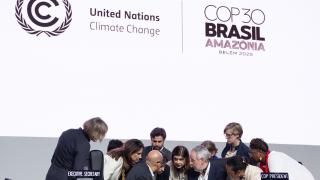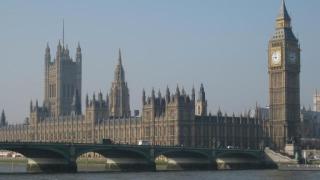UNA-UK supports and reiterates the call of the UN Secretary-General and the UK government for urgent de-escalation, and a diplomatic resolution to Israel and Iran’s legitimate concerns about security and nuclear proliferation.
The most urgent priorities are to stop the war from widening further, implement a ceasefire, and prevent Iran from leaving the NPT. The UK should make it clear it will not enter this war and should work with European and Arab governments to return the nuclear issue to the negotiating table on the basis of NPT norms. This could be a rare point of common interest among world powers, including the BRICS.
Civilians on all sides in the Middle East are suffering loss of lives, mass displacement, and an extremely uncertain future. The UK must hold to the principles of international law and international humanitarian law, which make everyone safer. The UN Charter is clear that war can only be justified in self-defence, the defence of allies, or if authorised by the UN Security Council. There is some dispute with respect to which actions can constitute legitimate acts of self-defence, but the legal consensus is that a threat must be imminent, and diplomatic avenues must be exhausted before force may be used.
As French president Emmanuel Macron has said, diplomatic routes were still available. Israel, which is known to have its own nuclear weapons and is not a party to the Non-Proliferation Treaty (NPT), initiated its attacks on Iran just two days before high-level talks on a new nuclear agreement were scheduled to be held between the US and Iran. These talks were needed primarily because seven years ago, the US unilaterally abrogated the multilateral Joint Comprehensive Plan of Action agreement that had provided guarantees Iran’s nuclear programme would stay peaceful.
Iran has been attacked when it was seeking to resolve the nuclear issue diplomatically. The legal constraints on the use of military force should protect all countries regardless of whether the UK or US approve of their governments. Iran has obligations to meet too: it is one of the sources of security threats in the region, through the posture it has taken towards Israel and its support for non-state armed groups with their own record of violations of international law. A deep reassessment is needed by all leaders involved in bringing the region to this dangerous point, for which civilians on all sides are paying the price.
In Iran, Israel’s attacks have quickly expanded beyond military and nuclear sites to include nuclear scientists, the foreign ministry, oil and gas infrastructure and state television. Iran has targeted Israeli civilians and civilian infrastructure in response. None are legitimate targets.
The IAEA Director-General has said that:
Military escalation threatens lives, increases the chance of a radiological release with serious consequences for people and the environment, and delays indispensable work towards a diplomatic solution for the long-term assurance that Iran does not acquire a nuclear weapon.
At a time of multiple risks to the global non-proliferation regime, it is vital to maintain the credibility of the NPT and IAEA. Both are likely to be undermined when they are invoked selectively by one of Iran’s adversaries to justify military attacks.
Beyond the nuclear issue, the war is part of a wider and continuing escalation of violent conflict in the Middle East region, which requires serious, coordinated multilateral work to de-escalate and resolve, including the UN conference on Palestinian statehood which has been delayed because of the new war in the region, even as Israel continues its assault on and blockade of Gaza, where UN officials have called for urgent action to prevent genocide.
A new approach to Middle East security is urgently needed, and one that does not treat the region as an exception to international laws and norms around sovereignty, self-determination and peace. Today these norms are being threatened more globally – partly because of previous wars of choice in the Middle East, as well as Russia’s invasions of Ukraine. Weakening the prohibition on the use of aggressive military force ultimately poses a danger to everyone, and the UK should be absolutely clear and consistent about this. Exceptionalism is particularly unsustainable in a more multipolar world, where many powers are likely to claim they are exceptional.
Jane Kinninmont, Chief Executive of UNA-UK, says:
Wars around the world are getting worse while peacemaking and mediation are in crisis. Attacking Iran during negotiations adds to the problem of peacemaking by undermining the credibility of the next negotiations, even as the US says it still wants to pursue an agreement. The UK urgently needs to invest in peacemaking with the same seriousness it is bringing to defence – we need to bring the peace back into peace and security.






